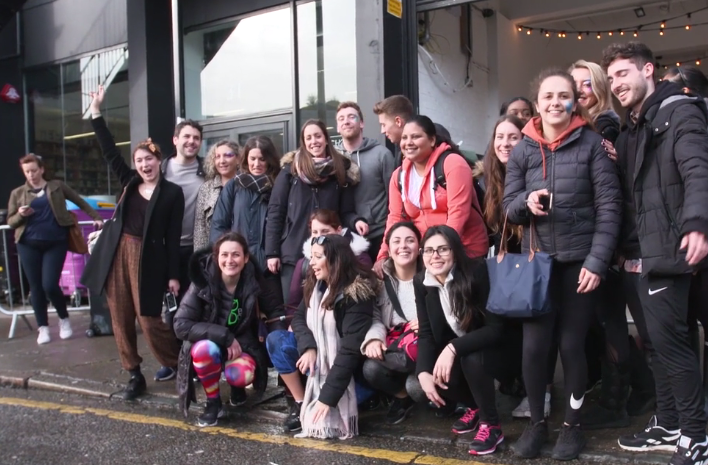
Well, read on, because traditions change and there are three key ways in which there could be a much better approach to studying event management!
University tuition fees are a big topic, regularly featuring in news stories across recent years. Indeed, it’s been one of the discussion points which kicked off this week’s labour party conference (Sky News). What’s more, with fees at universities in England costing up to around £9,250 annually and other study costs still rising, it’s a topic which continues to make headlines …
There’s really no getting away from it, the university approach to studying an event management degree is a good one for getting you into debt before you even start your career!
One approach which can prove much better for the budget is a degree-alternative study route, such as the Event Academy degree alternative course (DAC). This type of career-relevant education is a much more cost-effective alternative to university for several very good reasons:
At best, a university may encourage you to take a year out in the industry to gain some professional practice. However, the downside to gaining experience this way is that this ‘time out’ not only prolongs the length of time you’re studying, it also defers the time when you’ll actually be able to gain a salaried role in the industry.
And of course, in a fast-moving industry such as events, by the time you get your degree, the experience you had during that ‘sandwich year’ could be long out of date!
Of course understanding any industry also means knowing about the theory behind it. In all Event Academy’s courses, this vital theoretical side of the course is based around essentials such as risk assessment and marketing, which underpin event industry practice.
But what’s better about learning through our ‘experiential learning’ based model is that there’s minimal textbook learning. Instead, the vital theory is delivered in lectures and seminars which are led by event industry professionals. This means that the theoretical knowledge you gain is all about best practice and what’s relevant in the industry, plus you’ll be offered opportunities to put what you’re learning into practice throughout the course.
Because all the event-specific qualifications delivered by Event Academy offer opportunities to turn theory into practice through on-the-job or practical experience built in across the courses. In many cases, this may be through extensive volunteering opportunities but our Degree Alternative course also offers a 3-month work placement to help students really put that working knowledge of the industry into action.
What’s more, unlike university study where you may graduate and then start at the bottom of the ladder with an internship or apprenticeship, graduating from Event Academy means you offer potential employers:
All of which you’ll achieve far more quickly than through the traditional degree route! Martin Turner, our Senior Lecturer, advocates that in a fast-paced industry like events there’s no time to spend on a three-year course, instead it’s essential to “learn quickly, practically and get involved immediately.”
The value of a degree doesn’t just reflect the value of time and money spent achieving it, but also, and very crucially, it reflects the value that employers put on it:
(a) as a qualification
(b) as a reflection of your capabilities (in the context of the position you want with them)
As such, many graduates are finding that they’re being refused interviews for the jobs they want, particularly if they’re not seen as being work ready. Instead, many are obliged to settle for roles which don’t even require a degree, just so they can start earning (The Independent).
A vital aspect of our Degree alternative is that it offers many factors which make it relevant to both industry employers and those venues and corporations making use of freelance event professionals:
Finally, although aspects of our DA course can be completed online, the majority of our degree-alternative students join our course live in London. Since the London Olympics in 2012, London has been the acknowledged epicentre of global events and being involved in the industry from a London location adds value and kudos to the event management experience you’re offering to potential employers – as well as the qualification itself.